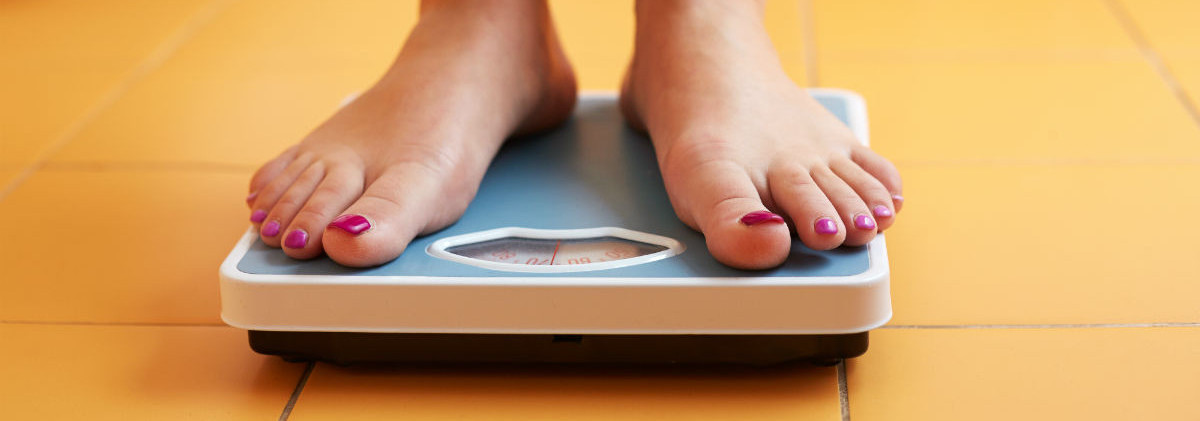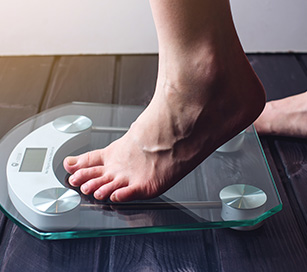
The lighter you are, the faster you run. This is due to your VO2 max – the maximum amount of oxygen that your body delivers to your muscles. When you’re lighter in weight, it’s easier for your body to transfer this oxygen to your muscles more efficiently. However, there are limitations as far as losing weight. Losing too much weight may decrease running performance because muscle loss may come with fat loss when taken too far.
While there are other factors at play when it comes to making one runner faster than others, body weight certainly plays a significant role. When running, your body has to overcome the force of gravity to lift you off the ground and move you forward. The lighter you are, the less energy your body uses to move against gravity, minimizing your energy cost at any given pace.
This is where a runner’s optimal racing weight comes in. All runners have their own ideal racing weight, which is basically the lowest weight they can healthily attain to support their peak running performance and recovery. This varies from one individual runner to another and is influenced by factors such as gender, body frame type, and height among others. A tall runner with a broader body frame, for instance, cannot expect to get as light as a shorter runner with a much smaller frame.
At the same time, being light does not mean you’ll automatically be the fastest runner in the field. You also have to be extremely fit, adopt a training schedule to boost your speed, and also have good racing tactics.
How Does Weight Affect Your Speed
Running Efficiency
As mentioned earlier, the lighter you are, the less energy your body spends overcoming gravity. A study published in the Journal of Experimental Biology showed that altering a runner’s weight had a direct effect on the metabolic cost of running. The findings indicated that the metabolic rate decreased with a corresponding decrease in weight, hence increasing the runner’s efficiency and speed.
Oxygen Delivery
Your body demands more oxygen as you run. Since excessive fat has a detrimental effect on submaximal aerobic capacity in larger people, they are more likely to run out of breath, become tired, and post poorer performances than their lighter counterparts.
Heat Dissipation
Your body generates a lot of heat when running and this needs to be quickly dissipated to avoid overheating. The more fat tissue you have, the more difficult it is to lose heat as the fat traps it within the body. This not only negatively affects your performance but also increases the risk of heat exhaustion.
Body Fat And Your Ideal Racing Weight
Speaking of fat tissue, the lower your body fat percentage is, the closer you are to attaining your optimal racing weight. You see, your body weight is a combination of muscle, bone, water, and fat mass. Out of all these, you have the greatest control over your body fat. There isn’t much you can do to change your muscle, bone, or water mass and messing with these can actually be detrimental to your health. Take into consideration that losing too much weight can be detrimental to your running performance and severe health complications, so taking certain precautions is crucial.

Optimal Racing Weight – NordicTrack
While all top runners have low body fat levels at their optimal racing weights, they are not equally lean. This is because body fat levels are determined by genes, gender, age, and other individual factors beyond our control. However, with the right diet and training, it is possible to overcome these factors to attain your ideal racing weight.
As you pursue your optimal racing weight, keep in mind that it is possible to become too lean. It can be easy to get so caught up in the chase for lower numbers that you compromise your health. Dangerously low body fat levels can lead to impaired performance, a weakened immune system, brittle bones, and a host of other health problems. To avoid this, it is better to find your ideal lowest body fat percentage depending on your age, gender, etc. From there, work within those parameters.
How To Find Your Optimal Racing Weight
While you can’t predict your optimal racing weight beforehand, there are ways to get an estimation. Matt Fitzgerald, certified sports nutritionist, sports coach, and author of Racing Weight: How to Get Lean for Peak Performance, provides this formula to estimate your ideal racing weight:
- First, determine your goal body fat percentage i.e. what you’d like your body fat percentage to be.
- Next, calculate your goal lean body mass percentage i.e. 1.0 – goal body fat percentage (from step 1) expressed in decimal form.
- Then get a scale that also provides body fat percentage, weigh yourself, and note both figures down.
- Calculate your lean body mass by taking your current body fat percentage (from the scale’s reading) and subtracting it from 100%, then multiplying the result by your current weight from step 3.
- Finally, calculate your ideal racing weight by dividing your current lean body mass (from step 4) by your goal lean body mass percentage (from step 2).
Alternatively, you can use Fitzgerald’s handy online calculator to estimate your optimal racing weight based on your current fitness level, age, and gender. Note that this number is to only be used as a guideline to work towards.
Achieving Your Optimal Racing Weight
Reaching your optimal racing weight calls for a more focused approach than spending more time with a trainer or increasing your workout sessions. For excellent results, develop better eating patterns. For instance, eating a nutritionally-dense breakfast is the best way to manage your appetite and maintain constant energy throughout your day. Additionally, learn to choose quality over quantity when it comes to calories. This includes foods rich in proteins, fiber, calcium, and fatty acids i.e. fruits, vegetables, dairy products, and nuts.
Also, remember to listen to and understand your body. If you feel sluggish, unwell, or excessively weak when running, you’ve probably fallen below your ideal weight and your health could be in danger. Achieving your optimal racing weight, therefore, calls for a delicate balance between body fat percentage, a healthy body, and peak running performance.
DISCLAIMER: This post is not intended to replace the advice of a medical professional. The above information should not be used to diagnose, treat, or prevent any disease or medical condition. Please consult your doctor before making any changes to your diet, sleep methods, daily activity, or fitness routine. NordicTrack assumes no responsibility for any personal injury or damage sustained by any recommendations, opinions, or advice given in this article.
Sources:
//livehealthy.chron.com/can-skinny-people-run-faster-7316.html
//www.ncbi.nlm.nih.gov/pmc/articles/PMC3871414/
//www.ncbi.nlm.nih.gov/pmc/articles/PMC3899678/
//www.nordictrack.com/learn/how-biking-can-make-you-run-faster/
//jeb.biologists.org/content/210/24/4418
//www.ncbi.nlm.nih.gov/pubmed/10918530
//www.ncbi.nlm.nih.gov/pmc/articles/PMC2762153/
//www.nordictrack.com/learn/everything-you-need-to-know-about-body-fat-percentage/
//pennshape.upenn.edu/files/pennshape/Body-Composition-Fact-Sheet.pdf
//www.medicalnewstoday.com/articles/241371.php
//www.racingweight.com


